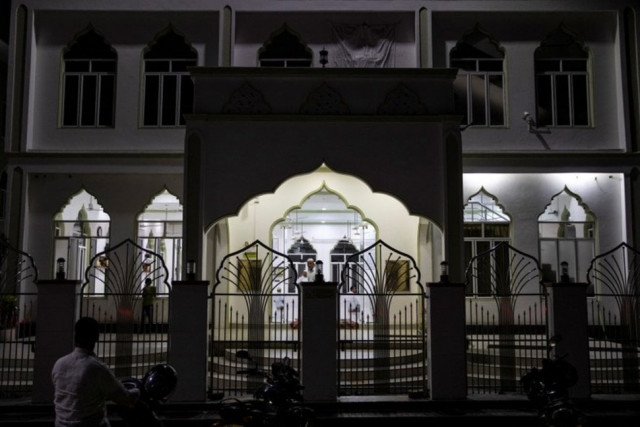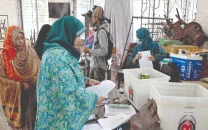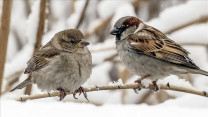Latest Sri Lanka arrest throws spotlight on Wahhabism in eastern hotbed
Wahhabi Islam has its roots in Saudi Arabia and is backed by its rulers

A mosque is seen at Center for Islamic Guidance in Kattankudy in Kattankudy, Sri Lanka, May 4, 2019. PHOTO: REUTERS
13 arrested as Easter Sunday attacks kills 290 in Sri Lanka
Mohamed Aliyar, 60, is the founder of the Centre for Islamic Guidance, which boasts a mosque, a religious school and a library in Zahran’s hometown of Kattankudy, a Muslim-dominated city on Sri Lanka’s eastern shores.
“Information has been revealed that the suspect arrested had a close relationship with ... Zahran and had been operating financial transactions,” said a police statement late on Friday.
The statement said Aliyar was “involved” with training in the southern town of Hambantota for the group of suicide bombers who attacked hotels and churches on Easter, killing over 250 people.
Trump misquotes Sri Lanka death toll as ‘138 million’
A police spokesperson declined to provide details on the accusations. Calls to Aliyar and his associates went unanswered. Reuters was unable to find contact details for a lawyer.
The government says Zahran, a Tamil-speaking preacher, was a leader of the group.
Two Muslim community sources in Kattankudy told Reuters his hardline views were partly shaped by ultra-conservative Salafi-Wahhabi texts that he picked up at the Centre for Islamic Guidance’s library around 2-3 years ago. The sources are not affiliated with the centre.
“I used to always run into him at the centre, reading Saudi journals and literature,” said one of the sources.
During that time, Zahran started criticising the practice of asking God for help, for instance, arguing that such pleas were an affront to pure Islam.
“That kind of teaching was not in Sri Lanka in 2016, unless you read it in Salafi literature,” the source added, requesting anonymity to avoid repercussions in Kattankudy.
London says Britons among those killed in Sri Lanka attacks
Salafism, a puritanical interpretation of Islam that advocates a return to the values of the first three generations of Muslims and is closely linked to Wahhabism, has often been criticised as the ideology of religious extremism worldwide.
Wahhabi Islam has its roots in Saudi Arabia and is backed by its rulers.
Other than the fact that Zahran visited the centre, the sources in Kattankudy said they did not know of any personal ties between him and Aliyar.
Aliyar founded the centre in 1990, a year after he graduated from the Imam Muhammad ibn Saud Islamic University in Riyadh, in what one resident said marked a key moment in the spread of Salafi doctrine in Kattankudy. The centre was partly funded by Saudi and Kuwaiti donors, according to a plaque outside.
Over 200 killed as eight blasts rock Sri Lanka during Easter celebrations
TROUBLEMAKER
Reuters spoke to three members of the centre’s board before Aliyar’s arrest. They asked to remain anonymous, citing security concerns amid a backlash against some Muslims.
They said Zahran was a troublemaker and that they had warned authorities about his extremist views. The members said they thought Zahran frequented the library around a decade ago, but had no recollection of him visiting recently and denied that any of its books were to blame for his views.
Funding for the centre came from local donations, student fees, and private donors who were classmates of Aliyar’s in Riyadh, the centre’s sources said. Reuters was unable to immediately determine further details about the funding of the center.
The Saudi government communications office in Riyadh did not respond to requests for comment on the funding of the centre.



















COMMENTS
Comments are moderated and generally will be posted if they are on-topic and not abusive.
For more information, please see our Comments FAQ